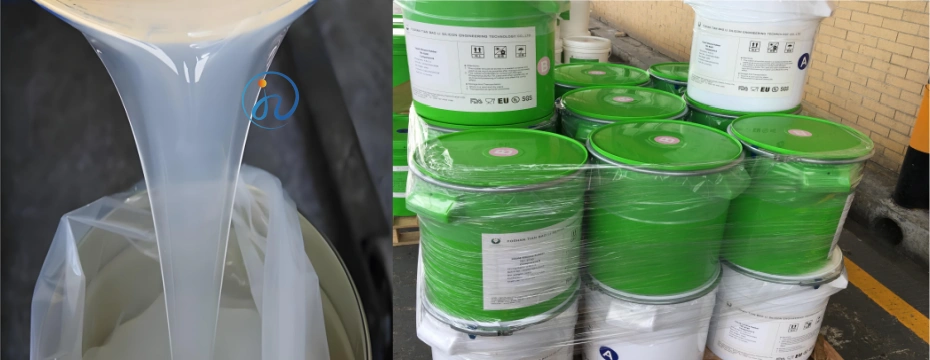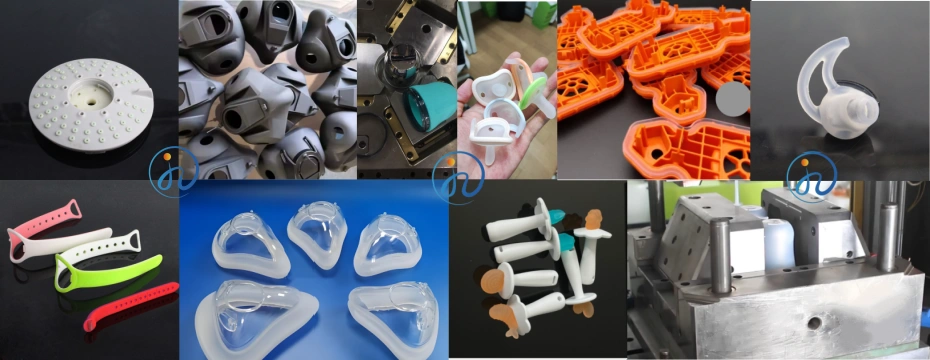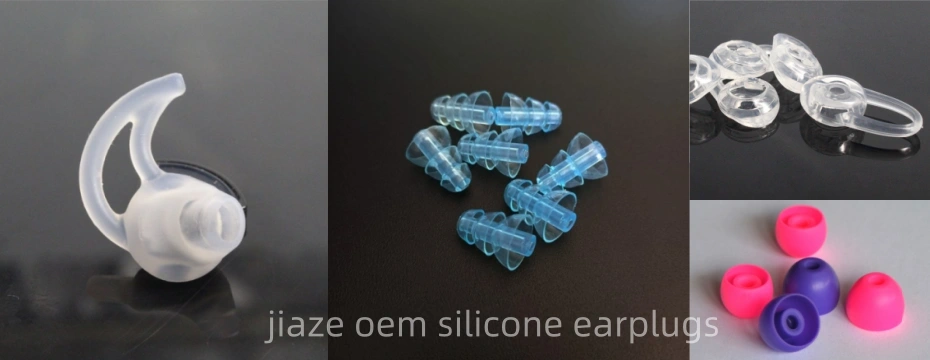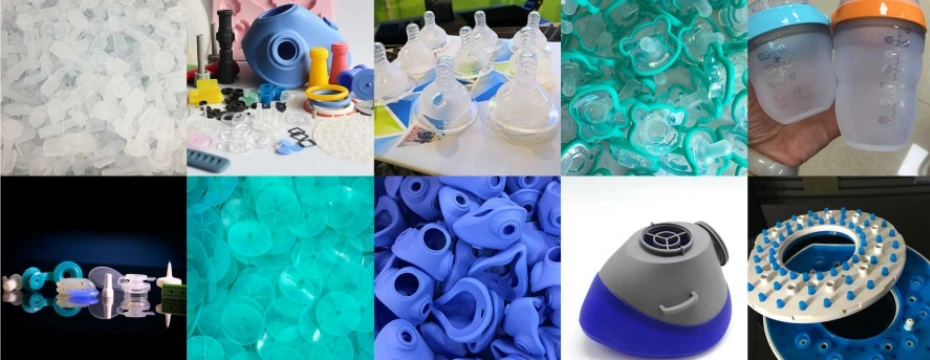Table of Contents
ToggleSilicone materials are highly beneficial for a wide variety of applications. Because of its properties, benefits of silicone materials have many advantages, these properties include the following: Flexibility, Malleability, Clarity, Temperature resistance, Water resistance, Durability, Easy to clean, Highly gas permeable, Nontoxic, Non-odorous.

Silicone has become one of the most versatile and widely used materials in today’s world. From baby products and kitchen tools to medical devices and automotive parts, silicone offers a unique blend of properties that make it superior to many other materials. In this article, we’ll explore the top benefits of silicone and why it is favored across industries.
1. Exceptional Heat Resistance
One of the standout properties of silicone is its ability to withstand extreme temperatures. It remains stable from -60°C to over 200°C, making it ideal for applications in:
- Cookware like baking molds and spatulas
- Automotive engine components
- Electrical insulation systems
Silicone does not melt, crack, or degrade easily under heat, giving it a clear advantage over plastics and rubber.
2. Superior Durability and Longevity
Silicone is known for its long life cycle and resilience. It is:
- Tear-resistant
- UV-resistant
- Weatherproof
- Resistant to ozone and aging
These qualities ensure that silicone products remain functional and reliable even after years of use, making them cost-effective in the long run.
3. Flexibility and Elasticity
Silicone’s softness and stretchability make it suitable for products requiring flexibility. It can stretch and return to its original shape without losing form, which is crucial for:
- Seals and gaskets
- Wearable devices
- Medical tubing and masks
- Baby bottle nipples and pacifiers

4. Non-Toxic and Hypoallergenic
One of the major benefits of silicone is its biocompatibility. It is non-toxic, odorless, and hypoallergenic, which is why it’s commonly used in:
- Medical-grade devices (implants, masks, catheters)
- Food-grade products (baking mats, bottle teats)
- Baby care items
It complies with FDA and medical safety standards, making it a safe choice for sensitive applications.
5. Water and Chemical Resistance
Silicone is highly resistant to water, oils, solvents, and many chemicals. This makes it ideal for:
- Waterproof sealing in electronics
- Chemical tubing
- Cosmetic containers
Its non-reactive nature ensures that silicone maintains product integrity even in harsh environments.
6. Excellent Electrical Insulation
Due to its high dielectric strength and thermal stability, silicone is a preferred material in the electrical and electronics industry. It provides insulation and protects sensitive components from heat and moisture.

7. Eco-Friendly and Recyclable
Modern silicone products are often BPA-free, phthalate-free, and recyclable. Though not biodegradable, silicone is more environmentally friendly than single-use plastics, and its long service life reduces waste over time.
8. Aesthetic Versatility
Silicone can be molded into almost any shape and colored in a wide range of hues. This makes it popular in consumer products, such as:
- Smartwatch straps
- Fashion accessories
- Home décor items
- Kitchen tools
It offers both functionality and style, appealing to design-conscious consumers.
Conclusion: Why Silicone Is the Material of Choice
From its heat resistance and flexibility to its medical safety and durability, the benefits of silicone are hard to match. Whether you’re in the automotive, medical, consumer, or electronics industry, silicone offers a high-performance solution that combines safety, longevity, and versatility.

If you’re looking for a custom silicone solution, make sure to partner with a reliable manufacturer with deep experience in LSR injection molding and material certification.